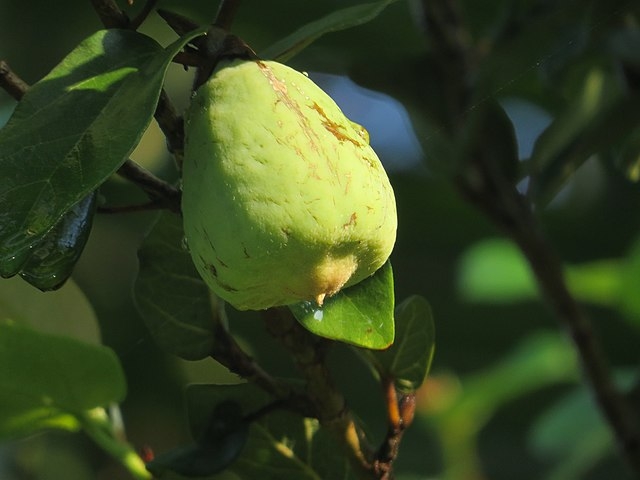Creeping Fig
(Ficus pumila)
Creeping Fig (Ficus pumila)
/
/

Vinayaraj
CC BY-SA 4.0
Image By:
Vinayaraj
Recorded By:
Copyright:
CC BY-SA 4.0
Copyright Notice:
Photo by: Vinayaraj | License Type: CC BY-SA 4.0 | License URL: https://creativecommons.org/licenses/by-sa/4.0 | Uploader: Vinayaraj | Publisher: Wikimedia Commons |






















Estimated Native Range
Summary
Ficus pumila, commonly known as Creeping Fig or Climbing Fig, is a fast-growing, evergreen vine native to East Asia, specifically China, Japan, and Vietnam. It has also naturalized in some regions of the southeastern and south-central United States. This plant is typically found in warm and humid forested areas, climbing on rocks and trees, where it can reach heights of over 4 meters. The small, heart-shaped leaves are an identifying feature, and the plant produces a sticky latex that helps it adhere to surfaces as it climbs.
Creeping Fig is valued for its ability to quickly cover walls, fences, and ground areas, creating a lush green tapestry. It is often used for decorative purposes in landscapes, as well as indoors as a houseplant in temperate regions due to its sensitivity to cold temperatures. It thrives in a range of soil types, provided they are well-draining, and prefers bright, indirect light or partial shade. While it requires minimal care, regular pruning can help control its growth and prevent it from becoming invasive. It is important to be cautious when planting Ficus pumila near buildings, as its vigorous growth and adhesive roots can damage structures with weak mortar or fragile materials.CC BY-SA 4.0
Creeping Fig is valued for its ability to quickly cover walls, fences, and ground areas, creating a lush green tapestry. It is often used for decorative purposes in landscapes, as well as indoors as a houseplant in temperate regions due to its sensitivity to cold temperatures. It thrives in a range of soil types, provided they are well-draining, and prefers bright, indirect light or partial shade. While it requires minimal care, regular pruning can help control its growth and prevent it from becoming invasive. It is important to be cautious when planting Ficus pumila near buildings, as its vigorous growth and adhesive roots can damage structures with weak mortar or fragile materials.CC BY-SA 4.0
Plant Description
- Plant Type: Vine
- Height: 10-15 feet
- Width: 3-6 feet
- Growth Rate: Rapid
- Flower Color: N/A
- Flowering Season: Spring, Summer
- Leaf Retention: Evergreen
Growth Requirements
- Sun: Part Shade, Full Shade
- Water: Medium
- Drainage: Medium
Common Uses
Bird Garden, Deer Resistant, Drought Tolerant, Erosion Control, Groundcover, Low Maintenance, Potted Plant, Salt Tolerant, Street Planting
Natural Habitat
Warm and humid forested areas in East Asia, climbing on rocks and trees
Other Names
Common Names: Creeping fig
Scientific Names: , Ficus pumila, Ficus stipulata, Ficus pumila var. pumila, Ficus minima, Ficus vestita, Ficus hanceana, Ficus longipedicellata, Ficus nagayamae, Ficus pumila var. lutchuensis
GBIF Accepted Name: Ficus pumila L.